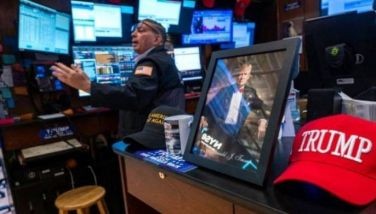Robinhood traders

The evolution of the coronavirus disease 2019 or COVID-19 into a pandemic has resulted in many unprecedented developments for the global economy and the stock market. Among the unique phenomena that occurred during this pandemic is the rise of millions of Robinhood traders in the US.
Who are these Robinhood traders?
Robinhood traders are small, but active customers of popular retail stock brokers in the US. They are mostly millennials who are new to the stock market. They are aggressive traders who want to make a quick punt. Unlike investment professionals or institutional investors who meticulously analyze data and do research. Robinhood traders tend to disregard corporate fundamentals. They thrive on volatility, speculation, and day-trading. They swarm like bees when drawn by momentum plays and high-flying stocks. However, they are also prone to false moves, sharp reversals, and sudden corrections.
Robinhoods hunt for battered stocks
Robinhood is a retail stock brokerage in the US. It has experienced exponential growth in its client base from only one million in 2016 to 10 million in 2019 and 13 million in 1Q20. The firm offers zero commissions and targets millennial traders through its stock-trading application. Robinhood has benefitted from a confluence of factors that gave rise to this unique phenomenon. Stay-at-home orders kept many people idle, prompting them to try their hand at stock trading. This resulted in millions of new retail brokerage accounts.
Meanwhile, casinos and sports events were closed due to lockdown restrictions. Some of the pent-up betting money may have moved to the stock market. Moreover, many of these traders used stimulus checks provided by the US government as initial capital for their trading. Coinciding with a historic drop in the equities market, Robinhood traders utilized their spare cash and idle time to snap up deeply-battered stocks.
Retail traders vs. Wall Street pros
Retail traders and Wall Street professionals can have opposing positions in the stock market. On the one hand, Robinhood traders flocked into beaten sectors such as casinos, airlines, hotels, and cruise companies. On the other hand, Wall Street pros and fund managers have taken a cautious stance on beaten-up sectors, opting to sell their recovery plays much earlier. Warren Buffett sold all his airline stocks in April, missing a big part of a furious rally. David Tepper said that this was the second most overvalued stock market since 1999. Stanley Druckenmiller earlier stated that the risk-reward for equities was probably the worst he has seen. However, he later on admitted that he was humbled by the continued rise of the stock market. Meanwhile, Leon Cooperman warned that speculative trading by retail traders will eventually end in tears. Major investment houses released tempered targets of 2,700 to 2,800 for the S&P 500 which is now at 3,098. So far, it appears that retail traders have been proven right as stocks continued to move higher because of monetary support from the Fed, fiscal stimulus by the US government, hopes for a COVID-19 vaccine, and anticipation of an economic recovery.
High risk
The success of Robinhood traders does not mean that everyone should flock into battered stocks the way they did. This is an extremely risky strategy because they are buying heavily-indebted or even bankrupt companies, possibly at unreasonable valuations, despite the uncertainty that lies ahead. Note that these are companies that are most vulnerable to the pandemic and may not survive a protracted crisis. Complications also arise as new-to-market retail investors dabble in sophisticated instruments such as derivatives and options. This was the case for a 20-year old student and Robinhood trader who committed suicide after seeing a negative cash balance of $730,165 in his account due to options trading.
The power of retail
Our experience in the Philippine stock market somewhat mirrors the rise of retail traders in the US. The PSEi has gone up 56 percent from its bottom on March 19 despite encountering a torrent of net foreign selling amounting to P35.3 billion from March 19 to present. This move was propelled by the strong buying of local retail investors, strategic purchases of government financial institutions (GFIs), and the increasing participation of domestic mutual funds. In the past, the PSEi’s swings have been dictated by the direction of foreign flows. However, in this case, the power of local retail has defied a strong wave of foreign selling.
Merry trading on MerryMart
We witnessed the power of retail investors with the fantastic performance of MerryMart. Last week, MerryMart conducted its initial public offering (IPO) at the price of one peso, thus raising P1.6 billion for the company. The stock traded on heavy volume and closed at ceiling prices on its first three days. It reached a peak of P4.50 on Thursday before correcting, and it was the top traded stock that day with value turnover of P1.6 billion. At its peak, its market capitalization stood at P34.2 billion, up 350 percent from its IPO valuation of P7.6 billion.
MerryMart’s spectacular rise reflects the big influence of retail investors on stock trading and reminds us to never underestimate the power of retail.
Investor education is paramount
The rise of Robinhood traders in the US and the remarkable performance of MerryMart show the importance of having a strong retail base and how it results in a buoyant market. In this light, the Philippine Stock Exchange, Securities and Exchange Commission, stock brokers, and mutual fund companies should continue their investor education programs. These include seminars/webinars, articles, or guides that can help new retail investors. Investor education is actually the primary purpose of this column. I continue to write because of this advocacy and I believe that a strong and educated retail base will aid inthe development of Philippine capital markets.
Philequity Management is the fund manager of the leading mutual funds in the Philippines. Visit www.philequity.net to learn more about Philequity’s managed funds or to view previous articles. For inquiries or to send feedback, please call (02) 8250-8700 or email [email protected].
- Latest
- Trending





























